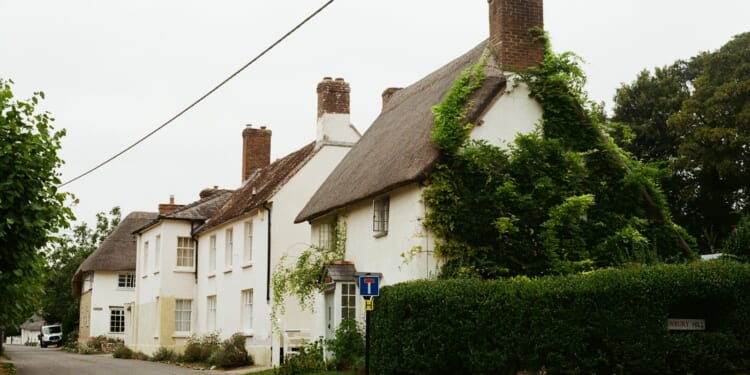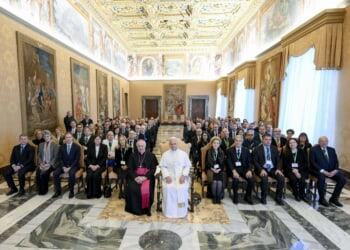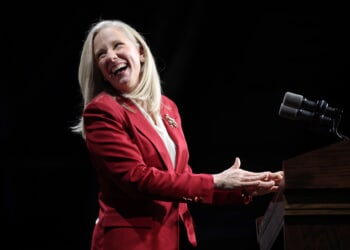Cllr Will Russell is the Leader of the Conservative Group on Brentwood Borough Council.
As I sit down to write, I can’t shake the anxiety that grips me about the uncertain times that lie ahead. This unease seems to stem from two sources: the political currents swirling around us and my instinctive paternal drive to shield my children from an unpredictable future. It feels like a potent mix of both, compounded by a growing sense of urgency as I approach the autumn of my life, wanting to ensure a stable and secure environment for my offspring.
Recently, I shared these sentiments with a group of residents while waiting for others to arrive at a community meeting. Their nods of agreement made me feel even more unsettled, confirming that I am not alone in my worries. As our conversation deepened, the residents expressed their fears about the transformations taking place in our borough, which is currently composed of 89 per cent Green Belt. They raised the government’s increasing appetite for constructing new housing, and concerns about Essex potentially being divided into three, four, or even five unitary authorities.
The urban area of the Borough of Brentwood is enveloped by a network of villages, all of which are now targeted for future growth. It is alarming to note that some newly developed areas have already been acquired by housing associations who are primarily focused on fulfilling their own housing requirements, rather than addressing the pressing needs of our local community.
Moreover, proposals for two motorway service stations threaten to further encroach upon these rural areas, exacerbating the fears of residents who feel their voices may go unheard in the future. The slow but steady advance of concrete looms over the borough, and many elected officials may soon find themselves lacking the influence needed to halt this progression when unitary councils take over. This situation raises significant questions about the future accessibility of decision-makers who currently engage with residents so readily.
As we approach the elections next May, I am cautiously optimistic about the prospect of a Conservative Mayor for Greater Essex. However, the thought of alternative candidates winning the position fills me with trepidation. Cllr Louise McKinley, the Conservative candidate, has consistently demonstrated a genuine commitment to serving her constituents over the last two decades. She understands the needs of both businesses and individuals, which is a quality I cannot attribute to some of her opponents.
It is this palpable fear and uncertainty about the future that fuels my ambition to stand for selection in the newly forming unitary authorities. I believe it is crucial to have representatives who truly care about the community and its residents. I would be honoured to support a Conservative Mayor, and in the worst-case scenario, I refuse to stand idly by while our borough is jeopardised by those who do not prioritise the public’s best interests.
The implications of these changes extend beyond mere political manoeuvring; they touch upon the very fabric of our community. As housing developments continue to rise with little focus on infrastructure, these projects transform the landscape, it is essential that we engage in meaningful dialogue about what kind of borough we want to create for future generations rather than tick box consultations that are designed to favour ambitions of the author of the document. The residents I spoke with that day echoed a deep-seated desire to maintain the character and integrity of our green spaces and local culture. It is imperative that we advocate for responsible development that respects the natural environment and addresses the needs of the community.
The pressure to develop housing is not unique to Brentwood; it is part of a broader trend seen across the UK, where the demand for affordable housing often clashes with the need to preserve greenbelt. This challenge begs the question: how do we strike a balance between development and conservation?
By empowering residents to voice their concerns and participate in planning discussions, we can ensure that development initiatives reflect the values and needs of our community. It is essential that local authorities are transparent about their plans and actively seek input from those who will be most affected by these changes.
As I reflect on my aspirations to contribute to our community’s future, I am filled with a renewed sense of purpose. The journey ahead will undoubtedly be challenging, but I firmly believe that with the right leadership and a committed community, we can navigate these uncertain times together. Our children deserve a future that is not only secure but also rich with opportunity and a deep connection to the environment they will inherit. It is our responsibility to ensure that they have a voice in shaping that future. As I prepare to embark on this path, I am reminded of the importance of hope and resilience in the face of adversity. It is these qualities that will guide me as I strive to protect and enhance the borough that I call home.

















